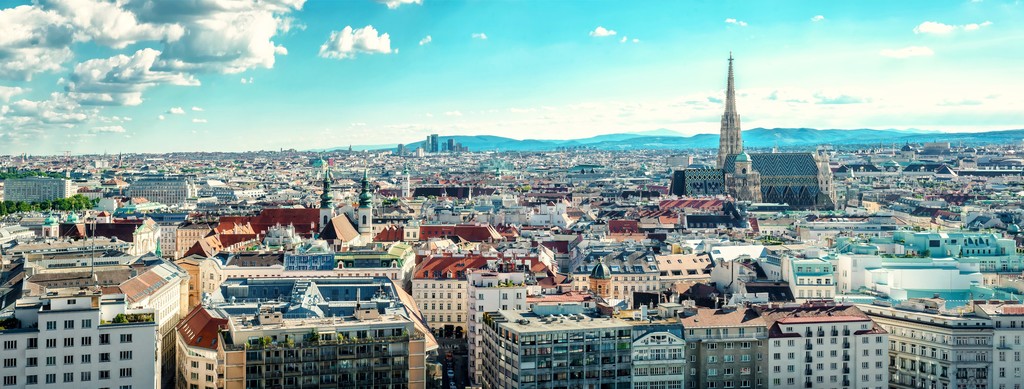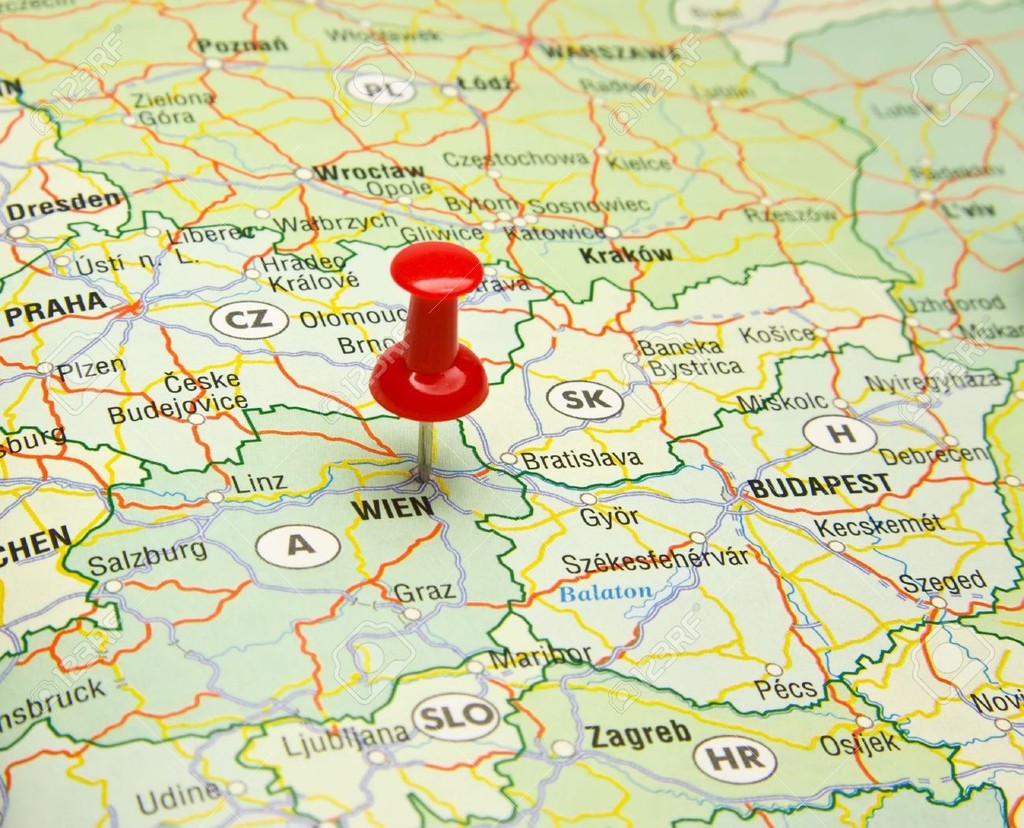What you need to know before going to Vienna | A travel guide to Vienna
- What you need to know before going to Vienna
- How to get to Vienna
- Accommodation in Vienna: the best options
- What to see in Vienna
- Transport in Vienna
- Food in Vienna
- Evenings out in Vienna
- Vienna and its surroundings: which cities you should not miss
"Wien, nur Wien, du kennst mich up kennst mich down. "
Translated word-for-word: "Vienna, only Vienna, you know me up, know me down. "
So Falco, the greatest musician that Vienna has ever produced, once sung. You can be certain that any Viennese you talk to will love the city. Being from Vienna gives you a reason to be proud of your city and if you have the possibility to live there, then you can be just as proud.
However, there are a few things that you should know about the Austrian capital before you visit it.
1. Geographical location
Vienna is not situated - as many believe - in the mountains. I often hear the stereotype that the whole of Austria is only made up of mountains. This is not true for Vienna. Therefore, if you think that you can go skiing every day when you come to Vienna, then you are unfortunately at the wrong address. The closest mountain is called Semmering and it is over an hour away from Vienna. However, Vienna and its surroundings (the federal state Lower Austria), are only slightly hilly (for example, the vineyards in the south of Vienna). Real mountains are far away and there are none in sight.

Panorama view of of the city center and St. Stephen's Cathedral
Despite this, the position of the imperial city is very strategic, especially when planning on also visiting other European cities. For example, both the Austrian cities Graz and Salzburg are about two to three hours away from Vienna by car (it takes half an hour longer with the train). Even Munich is not so far away; it takes four hours to get here, both by car and by train. Travelling eastwards, you can reach Bratislava in 60 minutes and, in two hours, you are in Budapest. Prague is about four hours away. Even Italy is not far away from Vienna: it takes about five hours to get to Triest, and six to Venice.

Vienna could be called a connection between East and West Europe.
2. Packing your suitcase
The weather varies enormously in Vienna and not only between the different seasons. Fine, during the past few years, it has been like that throughout the whole of Europe. But, during winter in Vienna, it can sometimes be -10 degrees (this doesn't happen very often, but it may), and, for this, it can reach 40 degrees in summer. Even rain is a regular guest in Vienna. But this is no reason to worry, as after the rain, the sun always shines. If you are coming to Vienna for the summer months, bring your swimming costumes, as the city has lots of public swimming pools. In particular, there is the Gänsehäufel, an outdoor swimming pool with access to the Old Danube, where you can go swimming if you don't fancy artificial swimming pools.

As the weather always does what it wants, it is advisably to prepare for every case and dress like an "onion". As Vienna is one of the classic central European cities, in which it can reach very high temperatures during the days (especially in the transition periods), and cools down again in the evenings.
3. Language skills
German is the official language of Austria. However, I must tell you something now: even if you come from Germany, it may be the case that you will have difficulties communicating when you come to Austria. In contrast to the rest of the country, the Viennese dialect isn't as wide-spread, but even here, we are very far away from Standard German. Many young people don't really speak the Viennese dialect, but in the last few years, a sort of youth slang has developed. This still includes some expressions from the 'old' dialect, but it also has a few German influences, which have been adapted. At University, you shouldn't have any, or not many, problems (even if your fellow students are from Vienna! ). However, you will quickly realise that in pubs, the metro, and even on TV Standard German is not always spoken. But don't worry! It is learnable! I know that you are now thinking that you don't want to come to Vienna to learn the dialect, but rather German (if German isn't your mother tongue), but you will give up on this plan after a month. No, give up is not the correct word, better said: you will learn German and Viennese. Perfect, right?!

Reccommended reading for everyone who is planning on coming to Vienna.
4. The Viennese
Not only concerning their dialect, but the Viennese are also a very distinct (and peculiar) folk. Clearly, I am biased towards this topic, as I am from Vienna, but I am trying to describe them as objectively as possible. It is highly probably that, at the beginning, you will not have a very good impression of the Viennese. To many, they give off the impression that they believe they are better (in the countryside they say "the arrogant Viennese"), but we are simply proud of our fantastic and beautiful City. That has nothing to do with arrogance. However, at first glance, the Viennese are not very social. In public places they always take care not to get too close to others, and conversations with strangers are taboo. Be careful or people in the metro will think you are crazy when you start talking to others.

Here is another set of useful words for you to remember.
This is, however, only the outer layer, this harsh and slightly reserved side. In actual fact us Viennese are always up for a bit of fun. We love to go for a glass of wine or a beer, and we are not stingy with jokes and banter. In my opinion, the problem here is that not everyone finds the Viennese humour funny. But you will see, sooner or later the Viennese sarcasm (der Wiener Schmäh) will grow on you.

Here is the official definition of 'Wiener Schmär'.
(translation: peculiar and humorous frame of mine of a Viennese inhabitant)
So be patient with the Viennese people and don't give up on them straight away. At the beginning, it is always difficult to make friends in a foreign city and in this case, the classic Viennese "bad mood" (always angry and grumpy) does not help. But I promise you, when you get to know us better, you will love us.; )
5. Vienna is Vienna
This last and short point is especially important: you are not coming to Austria, you are coming to Vienna. Of course, Vienna is Austria's capital, but it is also independent (not in a political sense, only culturally) from the rest of the country. Maybe this is why the Viennese are so unpopular in the other federal states, but it is simply so: Vienna is different!

The Viennese view of the world
Photo gallery
Content available in other languages
- Deutsch: Was man wissen muss, bevor man nach Wien kommt | Reiseführer von Wien
- Español: Lo que hay que saber antes de ir a Viena | Guía turística de Viena
- Français: Ce qu'il faut savoir avant d'aller à Vienne | Guide de Vienne
- Italiano: Cosa bisogna sapere prima di arrivare a Vienna | Guida di Vienna
Want to have your own Erasmus blog?
If you are experiencing living abroad, you're an avid traveller or want to promote the city where you live... create your own blog and share your adventures!
I want to create my Erasmus blog! →






















Comments (0 comments)